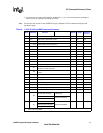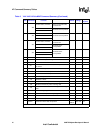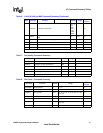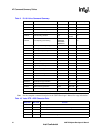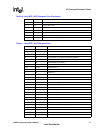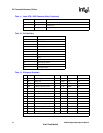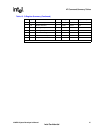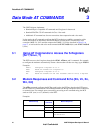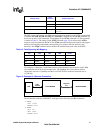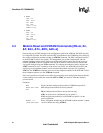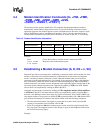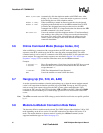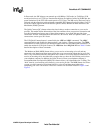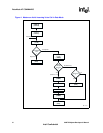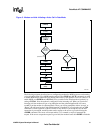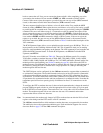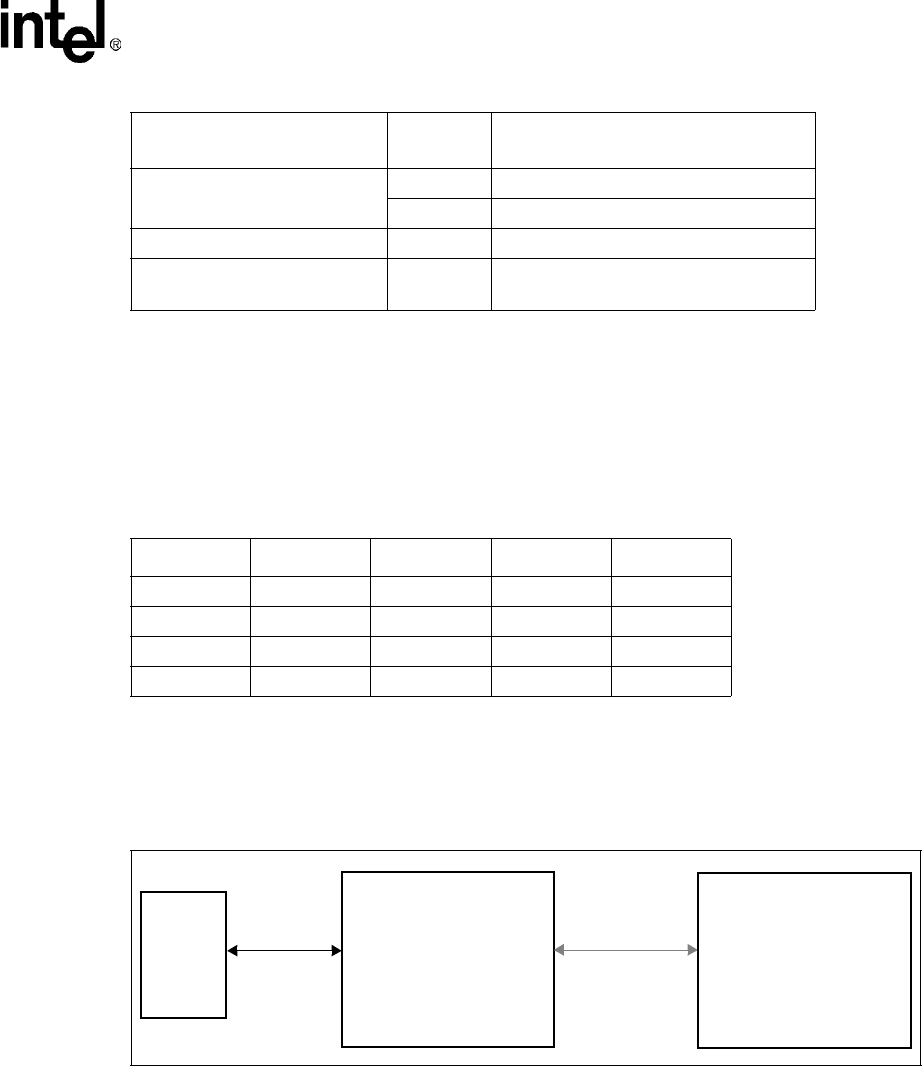
536EX Chipset Developer’s Manual 27
Intel Confidential
Data Mode AT COMMANDS
The DCE can be configures to use different response codes depending on the V.250 command that
is enabled (AT+MR, AT+ER, AT+DR, and AT+ILRR). Alternatively, the ATWn command can
be used to set these V.250 commands. The mapping for the ATWn command to V.250 commands
is shown in Table 14. The setting for the ATXn command (page 43) can affect which ATWn
response codes are reported to the DCE. The ATXn command configures the modem call progress
detection and reporting requirements during dialing (for example, dial tone and busy tone
detection). The ATQn command selects whether the modem sends result codes to the DTE.
For example, a connection is established with the remote modem as shown below (with LAPM
error correction and V.42 bis data compression). The telephone line (or modem-to-modem
connection) data rate is 33,600 bps and the local UART (DTE-to-modem) connection rate is
115,200 bps.
The modem then sends the ‘CONNECT’ messages for the following four Wn commands:
• ATW0
ILRR: 115200
CONNECT 50666
• ATW2
+MCR: V90
+MRR: 28800
CONNECT 50666
No Echo, Numeric (E0, V0) AT<CR> 0<CR>
ATS0?<CR> 000<CR><LF>0<CR>
No Echo, Text (E0, V1) AT<CR> <CR><LF>OK<CR><LF>
ATS0?<CR> <CR><LF>000<CR><LF><CR><LF>OK
<CR><LF>
Modem Setup
Host
Command
Modem Response
Table 14. Data Reporting Wn Mapping
Wn +ER +DR +MR +ILRR
W0 Disable Disable Disable Disable
W2 Disable Disable Enable Enable
W3 Enable Enable Enable Enable
W4 Enable Enable Enable Disable
Figure 3. Example of a Remote Connection
LOCAL MODEM
REMOTE MODEM
Telephone
Line
DTE
(115,200 bps)
(33,600 bps)
UART
Interface



